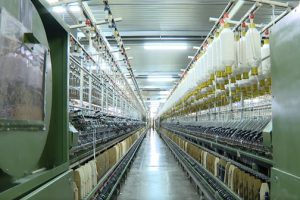
BY BACHA ZEWDIE
The data of the Ministry of Agriculture show that the horticulture sector, which includes flowers, vegetables and fruits, spices and herbs, which was severely tested due to the Covid-19 pandemic, has recovered and recorded more performance than planned last year. In 2021/22, it was planned to earn 589 million Dollars from the export trade of horticulture sector and it was possible to get 628 million Dollars. Doing so, Ethiopia became the second largest exporter of flowers in Africa, earning more than 541 million Dollars.
Effective performance of the horticulture sector in 2021/22
Abdella Negash, Head of the Horticulture Development sector at the Ministry of Agriculture, says that the attention given to the development of the sector during the fiscal year has contributed to the improvement of the performance. According to his explanation; In addition to the Ministry of Agriculture, the relevant offices of land, water, electricity, transport, and investment issues have made joint discussions to solve the problems of the sector.
Expanding the operations of companies that have been cultivating vast lands with limited capacity; being able to develop better varieties by removing old and unwanted varieties and implementing efficient methods that allow companies to quickly get the resources they need for their products have allowed the sector to record better production and productivity in the fiscal year.
Abdela reminded that the government has carried out reforms in institutions at all levels. He said that the reform has contributed positively to the efficiency of the sector. “One of the reformed sectors is the agricultural sector. In this way, efforts are being made to bring the services of the horticulture sector, which were being provided in a scattered manner, to one place, to lead the sector in a better performance and to provide intensive support. These efforts also contributed to the success recorded in the sector,” he said.
President of the Ethiopian Horticulture Exporters Association, Tewodros Zewdie on his part said that in the year 2014, it was possible to do better activities in the horticulture sector and the foreign currency earned in the fiscal year is better than the income earned in previous years. He recalled that the trade increase in the sector, the strengthening of the logistics capacity of investors and better coordinated operations contributed to the improvement in performance withstanding the pandemic’s impact.
Recalling mobility restriction in the main market destinations due to the COVID-19 pandemic had a great impact on the horticulture sector, Tewodros said that the sector has been able to show better performance with the coordinated activities carried out by the government and the Ethiopian Horticulture Producer and Exporters Association as the restrictions on activities are being eased and it is a sector that has made a great contribution to the country amid the impact of the epidemic.
Participation of local investors
Participation of local investors has an irreplaceable role for the sustainable development of a country. Economic science research experts say that supporting local investors is a matter that should not be questioned and will bring real economic change. Apart from their role in providing products and services, the investors have a great contribution in creating jobs for citizens, substituting import products and increasing exports, so they should be supported by the government to magnify their role.
Though bold fact the participation and share of domestic investors in the investment sector is constantly improving, it is not enough. There are many reasons why domestic investors’ investment participation and share as well as competitiveness are not high.
As to Tewodros, the investors stated that their stake in the sector is not as good as expected that he agrees with. “The main reasons for the lower participation and share of the investors are financial availability, lack of awareness and logistical problems. It is difficult to get the necessary finance for the sector. Investors’ understanding of the sector is insufficient. The logistics problem, especially in the fruit and vegetable sector, are obstacles that have adverse impact on the participation of local investors and the overall development of the horticulture sector,” he said.
Abdela pointed out that though most of the investors in the sector are foreigners, participation of local investors is also improving. “In order to solve the problems that investors have been raising in the past, the stakeholders will be brought to a platform and consultations about the problems will be held. It has been confirmed that this has an important role in solving the problems of the sector and improving its performance,” he said, referring to efforts being made to increase the participation of local investors.
In addition, there are incentive systems that can increase the share of local investors in the sector, Abdela said. According to him, while engaging into the sector, local investors are required to provide the necessary finance in local currency (Birr). Credit availability is another incentive. If the investors can provide some money, the government will provide the maximum amount through loans.
Challenges of Horticulture sector
Alike the other investment sectors, there are problems to be mentioned in the horticulture sector. According to Tewodros’ explanation, Lack of land, energy, finance and resources as well as lack of coordination are the main challenges in the horticulture sector. As to him, although many companies want to expand their operations, land is not being supplied to investors as required. Supply of resources required for production is also insufficient. The problem of power outages has prevented the organizations involved in the sector from working at their full capacity. The relationship and cooperation with educational and research institutes is also small compared to the capacity of the sector.
Pointing out that discussions have been held with the federal and regional governments to solve the problems, Tewodros said that the monthly consultation forum led by the Ministry of Agriculture and comprising the stakeholders of the sector has enabled some of the problems to be resolved. He expressed his hope that the other problems will be solved next.
While explaining about the challenges of the horticulture sector and the solutions, Abdela said, “The problem of land supply is one of the challenges of the horticulture sector. Regions are expected to select and prepare specific areas for investment. It is necessary to ensure the security of the land and create a way for the investor to develop without any obstacles. Sometimes there are questions that arise in connection with enforcement of tenure. For example, there are problems associated with the expansion of cities when reaching the farm area. Sometimes the lands may be under city ownership. Efforts are being made to solve these problems in cooperation with the relevant parties. Special attention is being given to investors so that they can import the resources they need for their investment activities and get appropriate support.”
Plans ahead
The horticulture sector is expected to earn more than USD 770 million in 2022/23 fiscal year. It is clear that for this plan to succeed, the challenges identified as problems in the sector need to be addressed. Abdela said that the horticulture sector has been neglected without getting the attention it deserves because other crops have been given a lot of attention in the agriculture sector.
He stated that currently, the development of horticulture has its own strategy and roadmap and the development of the sector is being supported by policy. According to him, most of the investors involved in the horticulture sector are involved in flower cultivation. By improving the operating system and creating favorable conditions for investment in the sector, preparations are being made to benefit from the high-potential fruit and vegetable sector.
In addition, “The government is undertaking reform works in the field and is moving with special attention. Investors should, thus, use the opportunity to create good chance for the country to benefit from. It is necessary to use this opportunity as there is an organization to solve the problems that have a negative impact on the efficiency of the sector. Regions should prepare enough land for investment and create other favorable conditions, create and develop a system where they work together with the federal government.
If there is a better environment for regions to allocate investment land, many investors are interested in engaging in this sector. If this can be done, the sector will generate a large amount of foreign currency for the country. Besides, the work on fruits and vegetables will play a big role in ensuring food security,” he said.
Tewodros on his part said; “If the government can provide the necessary resources for the development of horticulture, the existing investors will expand their business and new investors will be attracted to engage in the sector. Better performance can be achieved if better land supply and support system is developed. Therefore, it is necessary to meet the resources that will increase the efficiency of the sector and develop the procedures.”
Ethiopia is a country with high investment potential in the horticulture sector. In order for the country to benefit from the potential of the sector and to make the growth of the sector sustainable, it is very important to support local investors engaged in this sector; strengthen their participation and increase their share. Supporting local investors allows a country to rely on its own producers. It also helps to avoid the risk of problems caused by the volatile world politics. Therefore, in all efforts to increase investment in horticulture, increasing the participation of local investors should not be overlooked.
The Ethiopian Herald October 16/2022




